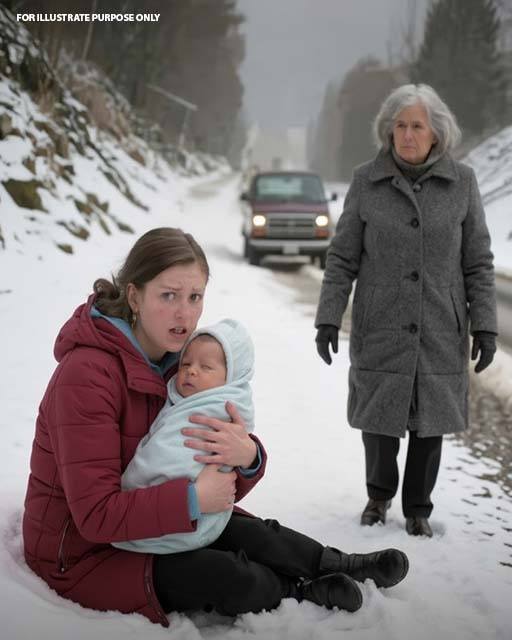The night my world collapsed, it carried a faint scent of lavender detergent and burnt bread. My mother was preparing a late snack for herself, and the bread had stayed in the toaster too long, turning black at the edges. That smell mingled with the sharpness of her words, words that will never leave me: “If you’re going to keep that baby, you can’t stay here. I won’t have it.”
I was seventeen, holding my breath to keep from crying. My father stood in the doorway, arms crossed, his silence harsher than my mother’s anger. He wouldn’t look at me, and that hurt more than anything. In his eyes, I could see shame, disappointment, and something like disgust.
My hand instinctively covered the small swell of my belly. I was only four months along, barely showing, but enough that my secret could no longer be hidden under baggy sweaters. I had been terrified to tell them, but a tiny part of me had hoped they would soften, that they would remember I was still their daughter. I was wrong.
That night, with nowhere else to go, I packed a duffel bag with essentials—clothes, my toothbrush, schoolbooks, and the sonogram picture I kept tucked inside a notebook. My parents didn’t stop me when I walked out the door. My mother turned her back; my father lit a cigarette on the porch, his face hard as stone. The door clicked shut behind me, and just like that, I was no longer their child.
I wandered for hours through the quiet streets of our small town. The air was cool, the lamps casting long shadows on the sidewalks. Every step I took felt heavier. Where was I supposed to go? My best friend’s parents were strict and religious; they would never welcome me. The boy responsible—my boyfriend at the time—had already disappeared when I told him the news. “I’m not ready to be a dad,” he had said, as if I were ready to be a mom.
By midnight, I ended up in the park. I sat on a bench, clutching my bag, my stomach twisting with fear and hunger. The night pressed in, and I realized I had never felt so alone.
And then, the strangest thing happened.
A figure appeared down the path, moving with surprising energy for someone clearly over seventy. She wore a long purple coat, mismatched gloves—one red, one green—and a scarf wrapped three times around her neck. A wide-brimmed hat covered her head, though tufts of silver hair curled out. She pushed a small cart decorated with stickers and dangling trinkets that jingled as she walked.
She spotted me immediately, and instead of crossing the street like most older people might upon seeing a teenager sitting alone at night, she headed straight toward me.
“Well now,” she said brightly, her voice carrying a curious mix of sharpness and warmth. “You look like a lost bird that’s flown into the wrong tree.”
I blinked, unsure how to respond. “I… I don’t have anywhere to go.”
“Don’t we all feel that way sometimes?” she mused, plopping down beside me on the bench. “My name’s Dolores. But most folks around here call me Dolly. What’s yours?”
I hesitated. “Marissa.”
“Pretty name,” she said, tugging her gloves tighter. Her eyes, bright blue and startlingly clear, scanned my face, then dropped briefly to my stomach. “Ah. So that’s the story.”
My cheeks burned. “My parents kicked me out,” I whispered.
“Then they weren’t doing the job parents are meant to do, were they?” she said firmly. “Their loss. Come on, get up. You’re coming home with me.”
I stared at her, startled. “I don’t even know you.”
She chuckled. “And yet I’m the only one offering you a roof tonight. Don’t worry, child, I may be eccentric, but I’m not dangerous. Ask anyone in town. I’ve been feeding stray cats and stray people for decades.” She leaned in with a conspiratorial grin. “You happen to be both.”
I almost laughed, and it felt strange after so many hours of despair. Against every instinct drilled into me about not trusting strangers, I stood and followed her. Something about Dolly radiated safety, even if she was unconventional.
